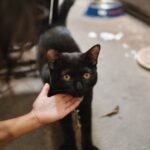Reaching your sixties brings newfound freedom and possibilities. Your schedule might be more flexible, your pace more relaxed, and your home quieter than it’s been in years. For many people in this stage of life, the thought of adding a feline companion becomes increasingly appealing.
Seniors can benefit both mentally and physically from owning a cat. Cats provide loving companionship to their owners, which can help relieve stress, lower blood pressure, and help keep your brain sharp. Cat ownership can also help seniors manage loneliness and isolation by providing a quiet, independent furry friend they can interact with whenever they choose. The question isn’t whether you should get a cat, but rather which breed will best suit your evolving lifestyle and physical capabilities.
Understanding Your Lifestyle and Physical Needs First

Before falling in love with any particular breed, you need to honestly assess your current situation and future expectations. When selecting the best cat for seniors, it’s crucial to consider breeds that match the physical capabilities and lifestyle preferences of older adults. Cats that are gentle, low-maintenance, and affectionate can provide the perfect balance of companionship and ease of care, making them ideal companions for seniors.
Consider your daily routine, mobility levels, and living situation. Many cats don’t require as much exercise or supervision as their canine equivalents, making them perfect companions for leisure. Cats are fairly independent, so you won’t have to worry about constantly looking after them; this is particularly reassuring if your senior parent has any medical problems. Still, different breeds have vastly different care requirements and energy levels that could impact your quality of life together.
The Gentle Giants Perfect for Calm Companionship

If you’re drawn to larger cats with sweet personalities, certain breeds stand out as exceptional choices. Birman cats are well-suited for seniors, as they are low-maintenance and love companionship. It describes them as “affectionate, gentle and intelligent” creatures that “enjoy the companionship of their humans.” These beautiful cats with distinctive markings offer the perfect balance of affection and independence.
Known for their large size and friendly disposition, Maine Coon cats are affectionately referred to as “gentle giants.” Despite their size, these cats are gentle and affectionate, forming strong bonds with their owners. Maine Coons are sociable and enjoy being around people, making them excellent companions for seniors. With their playful nature and outgoing personality, Maine Coons bring joy and laughter to their owners’ lives. Though their beautiful coats require occasional brushing, their easygoing temperament makes the extra care worthwhile.
Low-Maintenance Breeds for Easy Care

When grooming becomes challenging due to arthritis or other physical limitations, selecting a breed with minimal care requirements becomes crucial. The American Shorthair is both an affectionate and independent cat breed. In fact, the American Shorthair is a solid option for any age group because it can be left at home for several hours without causing trouble.
The British Shorthair is an exceptionally friendly breed that is also quite independent – they can be left alone for longer periods without issue, provided they have enough food and water. The breed is also known for being particularly healthy, so owners don’t have to worry about investing in costly medical treatments or medicines. These sturdy cats require only weekly brushing and have calm dispositions that mesh well with quieter lifestyles.
Quiet Companions for Peaceful Living

Living in an apartment or retirement community often means considering noise levels and neighbor relationships. Some breeds are naturally quieter and more suited to close quarters. If you’re looking for a quiet but loving kitty, the Russian blue is well worth considering. These cats aren’t clingy or demanding but they still like to be close to their owner. They thrive in calm homes with low activity and enjoy a slow pace of life. Shy with those they don’t know but very affectionate with those they’re close to, the Russian blue is a loyal and good-natured breed.
The Chartreux is the strong, silent type. They rarely meow, chirp or hiss, though they will do so to get attention. An affectionate breed, the Chartreux will bond with their owners and love to cuddle and play throughout the day. These breeds understand the value of comfortable silence while still providing meaningful companionship.
Considering Grooming Requirements and Physical Limitations

As you age, tasks that once seemed simple can become more challenging. Maintaining good grooming and hygiene practices is essential for senior cats, as they may have difficulty self-grooming due to age-related changes or physical limitations. Regular brushing, nail trims, and gentle cleaning can help keep your cat comfortable and prevent issues like matted fur or overgrown nails. However, your own physical capabilities matter too.
Long-haired breeds like Persians require daily brushing to prevent matting. However, because of their long coats, Persian cats require frequent grooming and maintenance. They do require more grooming than some other breeds, however; their long fur needs to be brushed daily to avoid mats and tangles. If you’re not up for that kind of commitment, a Persian might not be the right fit. While these cats are wonderfully calm and affectionate, honestly assess whether you can manage the grooming commitment long-term.
Apartment Living and Space Considerations

Your living situation plays a significant role in breed selection. Whether you live in an apartment or a house, this breed isn’t choosy about its living conditions. They are happy both indoors and outdoors, as long as they have enough entertainment. However, if you keep them outdoors, make sure it’s in a secure cat garden or enclosure.
Adult cats, on the other hand, usually have established personalities, so you know what you’re getting in terms of temperament and activity level. They are typically calmer and less demanding than kittens, making them a good fit for someone with a busy lifestyle. Consider adopting an older cat whose personality is already established rather than a kitten whose energy levels might be overwhelming for your current lifestyle.
Health Considerations and Veterinary Care

Both your health and your future cat’s health needs require careful consideration. Senior cats should have regular health checks twice yearly. Senior care programs usually include a thorough physical examination, blood and urine screening, and chest or abdominal radiographs (X-rays). While this advice applies to senior cats, it’s worth noting that you’ll need to manage these veterinary visits yourself.
Per visit, vet appointments typically cost between $50-250, with an average around $61 – twice to four times as much as the copay from a human doctor visit. These costs don’t even include food or toys, which typically cost $10-42 per month for food and $25-100 per year for toys. Budget for ongoing care and consider breeds known for their generally good health and longevity.
Making the Final Decision and Long-Term Planning

The most important factor in choosing your feline companion is ensuring a good personality match. Remember, the key is to match the cat’s personality with the senior’s lifestyle – whether it’s a laid-back lap cat or a playful purr-former. Consider visiting local shelters where you can interact with cats of different ages and temperaments.
Adopting a senior cat is always a kind thing to do, but as you say, it could leave you with grief again sooner rather than later. Reading between the lines, your concern is about possibly having to go into a nursing home and giving up your pet which can be a painful event in itself. Plan ahead by discussing your wishes with family members and researching pet-friendly senior living options in your area.
Conclusion

Choosing the right cat breed after sixty isn’t just about finding a pretty face or an interesting personality. It’s about finding a companion whose needs align with your capabilities and whose presence enhances rather than complicates your life. The best breeds for seniors tend to be calm, affectionate, and relatively low-maintenance, but the perfect choice ultimately depends on your individual circumstances, living situation, and preferences.
Whether you choose a gentle British Shorthair, a quiet Russian Blue, or a loving Ragdoll, the key is honest self-assessment and realistic planning. With the right match, you’ll gain not just a pet, but a devoted companion who can enrich your golden years with warmth, comfort, and unconditional love. What factors matter most to you in making this important decision?






